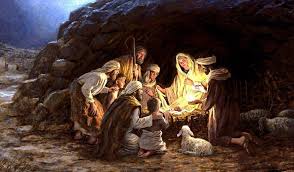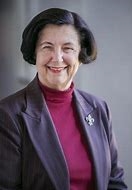-
The Willcocks Chord

This sermon was preached on December 28, 2025, being the First Sunday after Christmas Day, at the 9:00am Rite II Eucharist at Saint Mark’s Episcopal Church (Lappans) in Boonsboro, Maryland. Readings: Isa. 61.10—62.3; Ps. 147.13-21; Gal. 3.23-25; 4.4-7; Jn. 1.1-18 Collect of the Day: “Almighty God, you have poured upon us the new light of… Continue reading
-
Ponderings of the Heart

This sermon was preached on December 24, 2025, being the Eve of the Nativity of Our Lord Jesus Christ, at the 5:00pm Rite II Christmas Eve Mass at Saint Mark’s Episcopal Church (Lappans) in Boonsboro, Maryland and the 11:00pm Christmas Eve Mass at the Chapel of Saint James of Jerusalem at Saint James School in… Continue reading
-
The Letter vs. the Spirit of Righteousness

This sermon was preached on December 21, 2025, being the Fourth Sunday of Advent, at the 9:00am Rite I Eucharist at Saint Mark’s Episcopal Church (Lappans) in Boonsboro, Maryland. Readings: Isaiah 7.10-16; Psalm 80.1-7, 16-18; Romans 1.1-7; Matthew 1.18-25 Collect of the Day: We beseech thee, Almighty God, to purify our consciences by thy daily… Continue reading
-
“God Is HIM”

This sermon was preached at the 9:00am Rite II Eucharist on March 23, 2025, being the Third Sunday in Lent, at Saint Mark’s Episcopal Church (Lappans) in Boonsboro, Maryland. Readings: Exodus 3.1-15; Psalm 63.1-8; 1 Corinthians 10.1-13; Luke 13.1-9 Collect of the Day: Almighty God, you know that we have no power in ourselves to… Continue reading
-
“How Firm a Foundation”

The following homily was preached on July 30, 2023, being the Feast of the 174th Anniversary of the Consecration of St. Mark’s Episcopal Church (Lappans Road), Boonsboro, Maryland at its 9:00am Rite I Eucharist. Collect of the Day: “O Almighty God, to whose glory we celebrate the dedication of this house of prayer: We give… Continue reading
-
“The Continuing Easter Story”

The following homily was preached on May 21, 2023, being the Seventh Sunday of Easter: The Sunday after Ascension Day, at the 9:00am Rite II Eucharist at St. Mark’s Episcopal Church (Lappans Road), Boonsboro, Maryland. Readings: Acts 1:6-14; Psalm 68:1-10, 33-36; 1 Peter 4:12-14; 5:6-11; John 17:1-11 Collect of the Day: “O God, the King of… Continue reading
-
“Standing on the Promises of God”

The following homily was preached on May 14, 2023, being the Sixth Sunday of Easter, at the 9:00am Rite II Eucharist at St. Mark’s Episcopal Church (Lappans Road), Boonsboro, Maryland. Readings: Acts 17:22-31; Psalm 66:7-18; 1 Peter 3:13-22; John 14:15-21 Collect of the Day: “O God, you have prepared for those who love you such good… Continue reading
-
“God Love You. I Know I Do.” (A Sermon in Memory of Melinda Waller Mangham)

The following sermon was preached on May 3, 2020, being the Fourth Sunday of Easter, at the 11:00am Rite II Private Eucharist at Saint James Chapel at Saint James School in Hagerstown, Maryland. Readings: Acts 2.42-47; Psalm 23; 1 Peter 2.19-25; John 10.1-10 Collect of the Day: O God, whose Son Jesus is the good… Continue reading
-
“Return, Redemption, and Rejoicing”

The following sermon was preached on March 31, 2019, being the Fourth Sunday in Lent, also known as “Laetare Sunday,” at the 8:30am Rite II and 11:00am Rite I Eucharist services at the Episcopal Church of the Ascension in Lafayette, Louisiana. Readings: Joshua 5.9-12; Psalm 32; 2 Corinthians 5.16-21; Luke 15.1-3, 11b-32 Collect: Gracious Father,… Continue reading
-
“Service Above Self”

The following sermon was preached at the 11am Rite I Choral Eucharist at Saint Thomas Church Fifth Avenue in New York, New York on October 21, 2018, being the Twenty-Second Sunday after Pentecost (Proper 24B) Collect: Almighty and everlasting God, in Christ You have revealed Your glory among the nations: Preserve the works of Your… Continue reading
About BRANDT
The Rev. Dr. Brandt Montgomery is the Chaplain of Saint James School in Hagerstown, Maryland and Vicar of Saint Mark’s Episcopal Church in Boonsboro, Maryland, having previously served at the Episcopal Church of the Ascension in Lafayette, Louisiana as Chaplain of Ascension Episcopal School from 2014-2017, then as Associate Rector and All-School Chaplain from 2017-2019. From 2012-2014, Fr. Montgomery was the Curate at Canterbury Episcopal Chapel and Student Center at the University of Alabama in Tuscaloosa, his first parochial appointment following his ordination by the Bishop of Alabama.
Fr. Montgomery received a Bachelor of Arts in Music, specializing in Trumpet Performance, from the University of Montevallo in Montevallo, Alabama in 2007. He received the Master of Divinity (cum laude) in 2012 from The General Theological Seminary in New York City, for which he wrote the thesis “Time’s Prisoner: The Right Reverend Charles Colcock Jones Carpenter and the Civil Rights Movement in the Episcopal Diocese of Alabama.” In 2021, Fr. Montgomery received the Doctor of Ministry degree from the School of Theology at the University of the South in Sewanee, Tennessee, his thesis titled “The Development of Diversity, Equity, and Inclusion at Saint James School of Maryland.”
Fr. Montgomery’s scholarly interests lie in the areas of American religious history, Episcopal Church history, the Oxford Movement and Anglo-Catholicism, the Civil Rights Movement, and practical theology.
